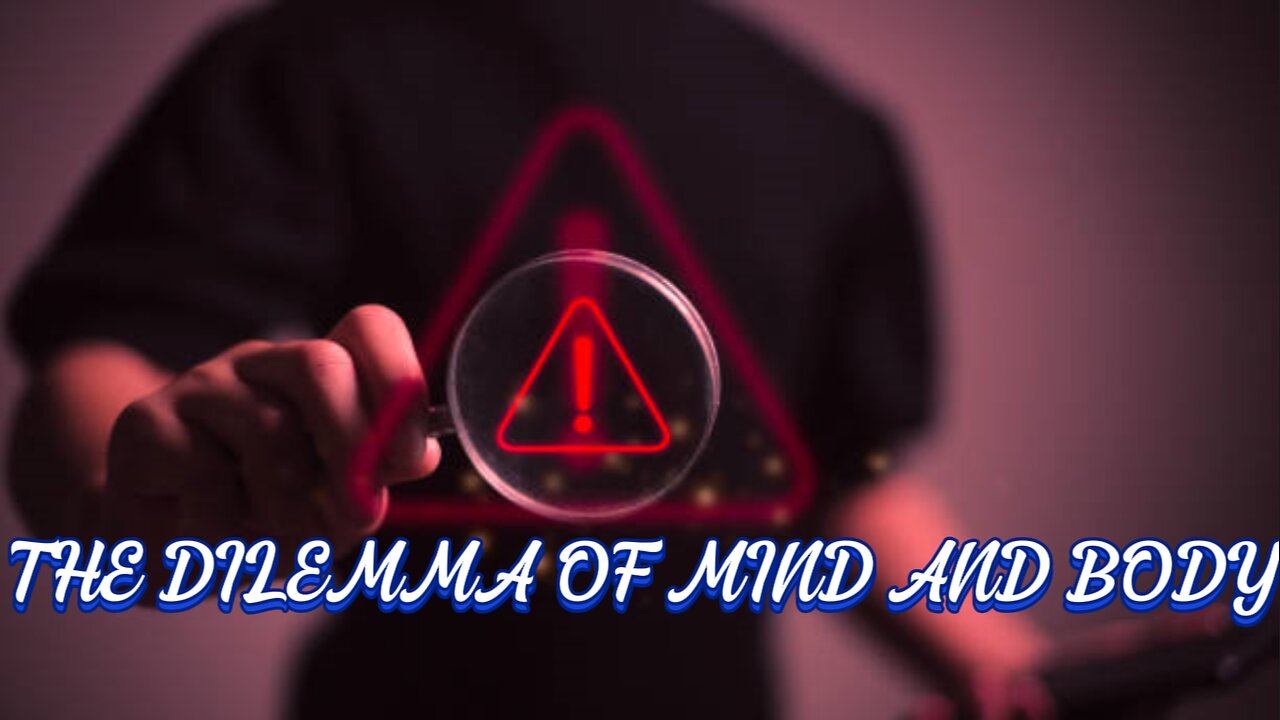Premium Only Content

THE DILEMMA OF THE MIND AND BODY...
The doubt of the mind encompasses a complex array of cognitive processes and emotional responses that arise when individuals encounter uncertainty, ambiguity, or conflicting information. It is a fundamental aspect of human consciousness, deeply rooted in our capacity for introspection and critical thinking.
At its core, doubt involves questioning the validity, reliability, or truthfulness of beliefs, ideas, perceptions, or decisions. It arises when there is a discrepancy between what is known and what is uncertain or unknown. This uncertainty can manifest in various forms, such as doubt about one's abilities, doubts about the intentions of others, or doubts about the accuracy of information.
Doubt is not a static phenomenon; it exists along a continuum, ranging from fleeting moments of hesitation to persistent skepticism. It can be triggered by internal factors, such as personal insecurities or cognitive biases, as well as external factors, such as conflicting evidence or societal influences.
The experience of doubt is often accompanied by a range of emotional responses, including anxiety, confusion, frustration, and even existential angst. These emotions can further complicate the process of grappling with uncertainty, potentially leading to avoidance behaviors or emotional distress.
However, doubt is not inherently negative. When approached with curiosity and an open mind, it can serve as a catalyst for intellectual growth, self-reflection, and deeper understanding. Doubt prompts individuals to critically evaluate their beliefs and assumptions, encouraging them to seek out new information, consider alternative perspectives, and refine their understanding of the world.
In the realm of philosophy and epistemology, doubt has long been recognized as a foundational element of inquiry and knowledge acquisition. Thinkers such as Descartes, Kant, and Nietzsche have explored the nature and implications of doubt, contributing to our understanding of skepticism, certainty, and the limits of human knowledge.
Overall, the doubt of the mind is a multifaceted phenomenon that reflects the inherent complexity of human cognition and perception. By embracing doubt as a natural and inevitable aspect of the human experience, individuals can cultivate the resilience, curiosity, and critical thinking skills needed to navigate uncertainty and pursue truth and understanding.
#NavigatingDoubt
#EmbraceTheUnknown
#DoubtToDiscovery
#BeyondUncertainty
-
 UPCOMING
UPCOMING
Sarah Westall
1 hour agoMysterious Fog and California Wildfires Both Contain Dangerous Elements w/ Dr Robert Young & Hazen
601 -
 LIVE
LIVE
Mally_Mouse
1 hour agoLet's Play!! -- Stardew Valley pt. 23!
287 watching -
 16:21
16:21
China Uncensored
4 hours agoCan Anything Stop the Tiktok Ban?
18.4K3 -
 7:08
7:08
Guns & Gadgets 2nd Amendment News
8 hours agoTruckers Fight For National Reciprocity
13.1K7 -
 1:30:22
1:30:22
InfiniteWaters(DivingDeep)
10 hours ago7 MOST USEFUL MANIFESTATION LIFE HACKS EVER!
3.02K1 -
 47:17
47:17
PMG
1 hour ago $0.02 earnedHannah Faulkner and Julie Behling | Beneath Sheep's Clothing
1.42K -
 38:35
38:35
CharLee Simons Presents Do Not Talk
1 day agoDO NOT TALK with SAM ANTHONY (YourNews.com) Zuckerberg vs. Anthony!
9191 -
 3:46:49
3:46:49
Scammer Payback
4 hours agoCalling Scammers Live
29.3K6 -
 43:49
43:49
Stephen Gardner
4 hours ago🔥Congress DROPS Bad News on Newsom and Biden!
73.2K58 -
 1:54:54
1:54:54
Twins Pod
4 hours agoHe Left The RAP Industry To Make Christian Music! | Twins Pod - Episode 48 - Bryson Gray
56.9K14